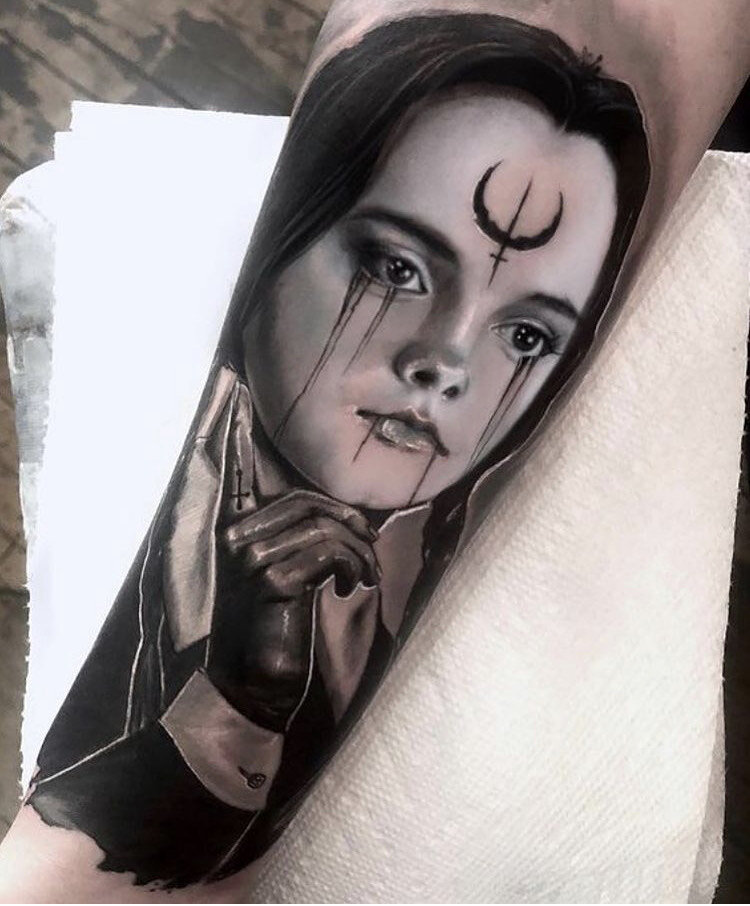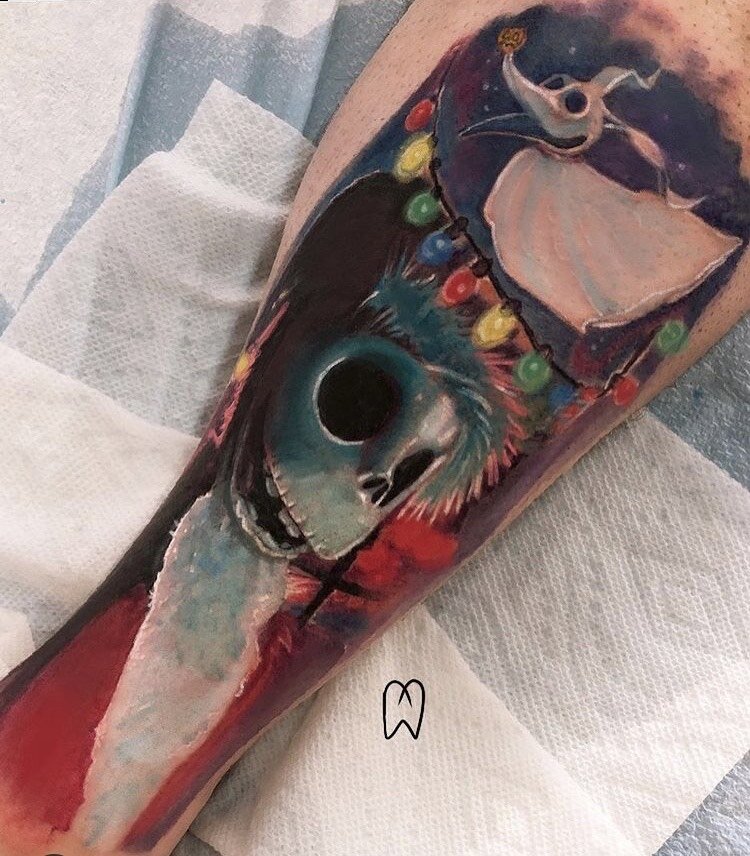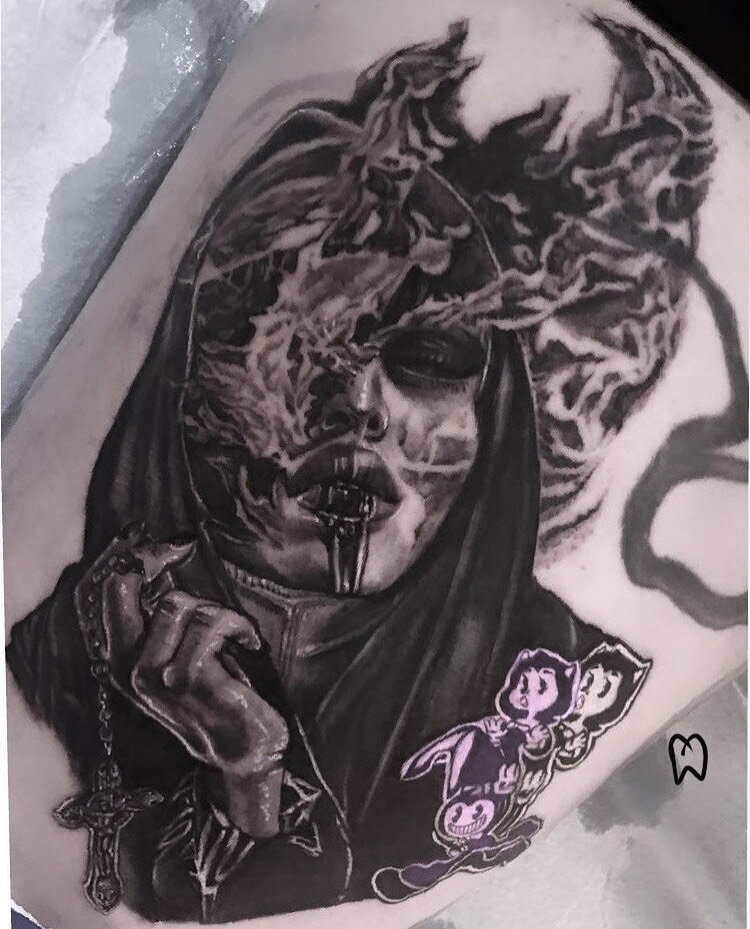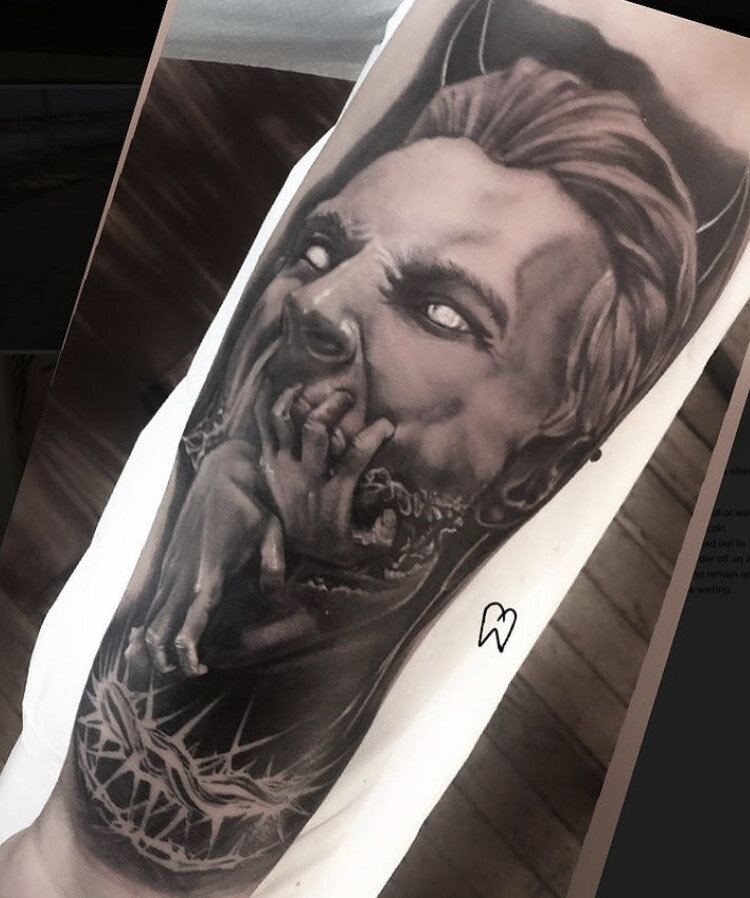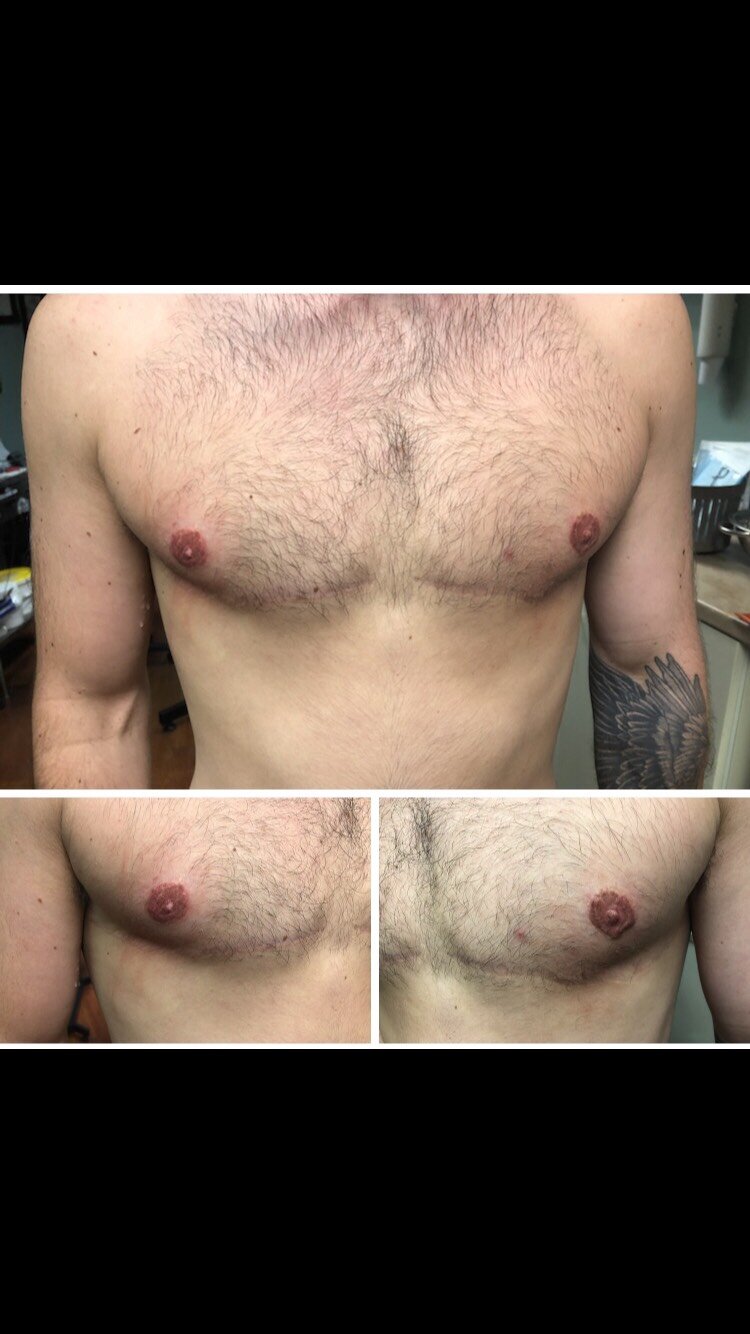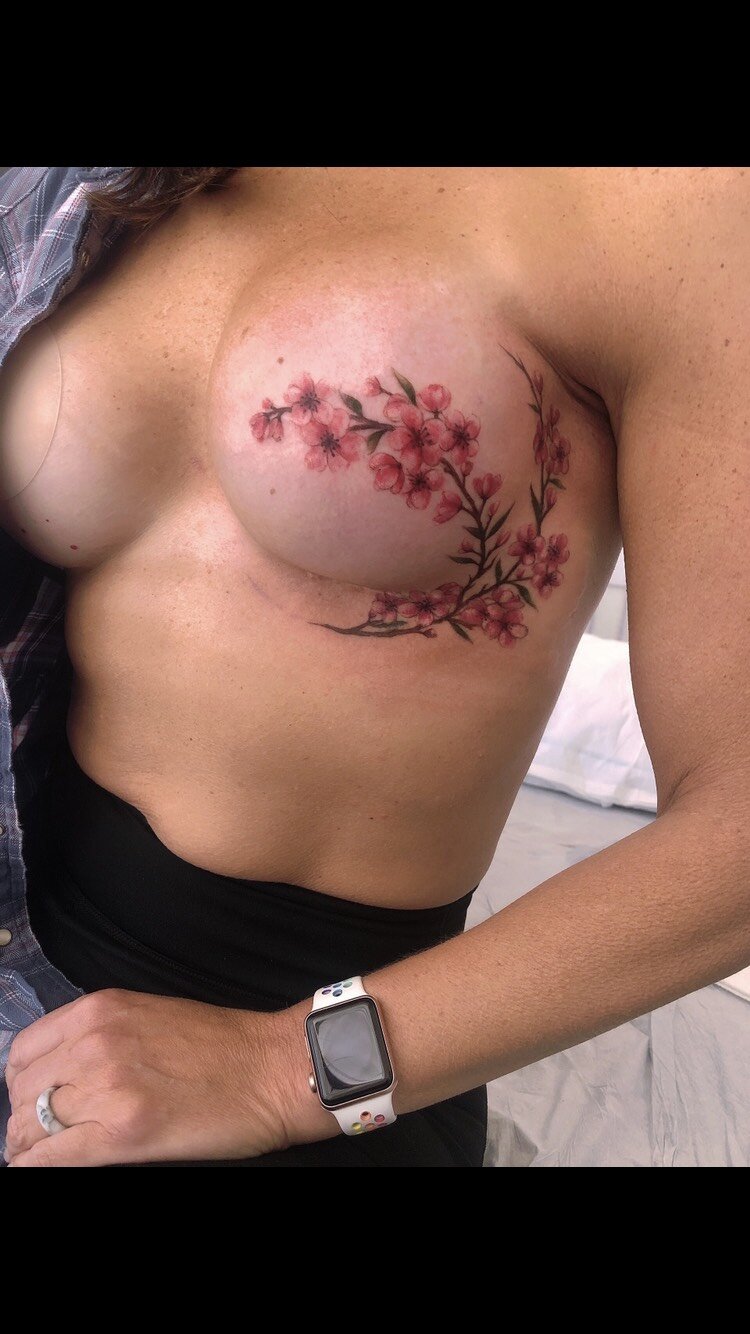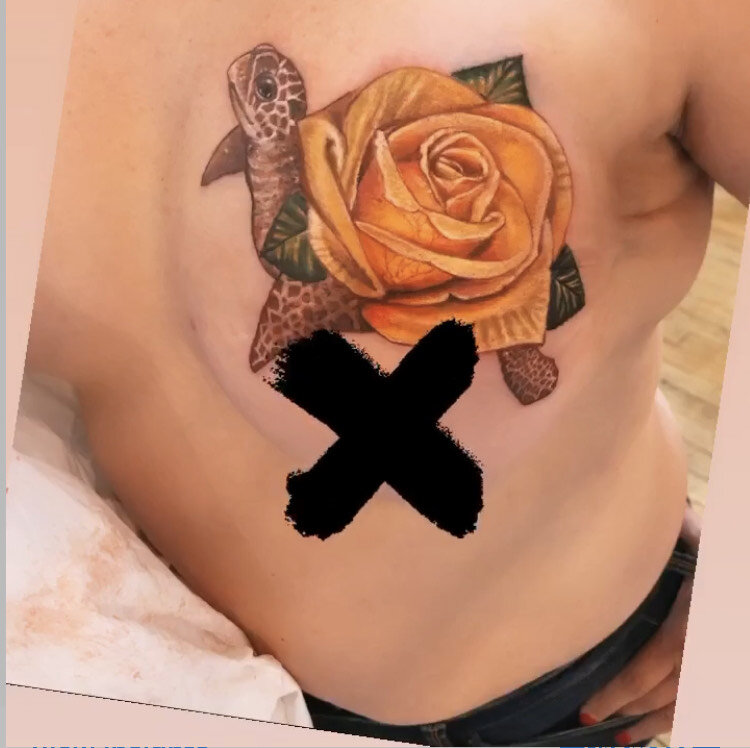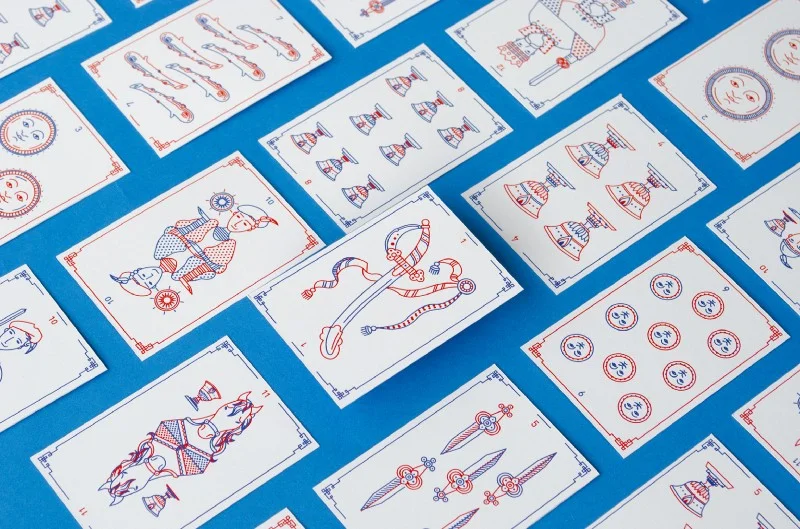Tattoos Can Change People’s Lives
An Interview with Hungarian Tattoo Artist Brigitta Máthé
Brigitta Máthé is a Hungarian tattoo artist currently based in Chicago. She started her journey in the world of tattoos nearly a decade ago while still waiting tables to make a living. Since then her designs have been featured in magazines, both online and offline, and potential clients often need to wait months to book an appointment with her. I sat down with Brigi, my dear friend of over ten years, to gain insight into her life as an artist and to learn about the challenges, opportunities and responsibilities tattoo artists may encounter in today’s world. We also talked about work-life balance, cultural appropriation, and the way tattoos can change people’s lives for the better.
Brigitta Máthé
You have been working as a tattoo artist for quite some time now and have experienced life as an artist in Europe and North America. Please tell us about the beginnings. How did your journey start?
It started with plenty of hard work and sweat, long hours and no holidays, and by simply figuring out what I wanted to do. After I finished my studies in history at the university in Hungary, my path led me to England where I got an opportunity to work as a waitress in the Channel Islands. I knew that was not what I wanted to do forever, so I asked myself the question: ‘What else am I good at other than history?’ The answer was art. I’d been drawing since kindergarten, never professionally, so I encountered – and overcame – the first challenge right there. I needed to build up a portfolio to be able to apply for apprentice jobs. Then one studio took me on board, taught me how to use my machine, and that was that. Here we are, after nine years of tattooing… Oh gosh, I am old!!!
What is something surprising you learned about the craft but had never thought of?
That it takes a long time to get to a certain level, and even when you reach that level, you’re still not where you want to be. Also, I didn’t know that my painting and tattooing skills can support and enhance each other: learning to tattoo has definitely improved my painting skills and vice versa. And I didn’t realize how much this industry revolved around customer service compared to art, which takes up a lot of my free time. I’m not done working when I leave the studio. I go home and have to design for the next day. It’s kind of non-stop.
Well, it’s like being a journalist… How do you stay motivated, inspired, and creative?
It is a hard question. I guess by giving myself time to relax and renew my energy. I am not gonna lie, this is the hardest thing for us, and probably for you, too. Sometimes the problem is not even creativity, but the process of sitting down at home and doing your work – also as a hobby that I love pursuing. It’s difficult to do art as a hobby now. This is what I do for work, and often I don’t want to come home and spend more hours with it. I need to figure out a solution soon… It’s very easy just to get home, sit on the couch cuddling up with your man and cat babies, and play video games or read instead of doing something you should be doing. In terms of staying inspired and creative, I get inspired by movies, memes, life, and other artists all the time.
With such a limited amount of time, how do you make sure you have balance in your life?
This is a topic I discuss with my artist friends a lot as it is incredibly hard to do so. Almost mission impossible. My method is literally creating rules for my own sake. At the end of the day, most of my clients come to me because they like my work, so they are usually very patient and awesome and deal with me and my rules. You just have to be straightforward with them.
I got to the point where I only show the designs to my clients on the day of their appointment unless they request that they want to see the design the night before. It would eat up all my time. Clients would control my free time and ask me to change every little detail. In case some changes are needed, I discuss them with my clients during their visit to my studio. This way they’re not influenced by their surroundings to ask for all kinds of things. I’m happy to say that it works. Surprisingly, this change has resulted in more satisfied clients, too. And I deal with bookings exclusively on my days off (Sunday and Monday). Potential clients usually need to book their appointments months in advance, so another four-five days don’t really matter. All these changes have helped me have some routine that works for me and my loved ones: after I arrive home, I don’t get back to my work until late at night so I can spend quality time with my family.
The way society looks at tattooing has changed a lot, but we can still find people who don’t consider them socially acceptable. What are the biggest misconceptions about tattoos and tattooing in our society? How can we eliminate them?
Tattoos are still often seen as a negative label, and they can generate a lot of negative associations. Especially in Europe. I think people often find it scary and can’t really understand why someone would want to wear tattoos. For example, people used to not sit next to me on the bus in London because of my neck tattoo. (But they were missing out because I’m a sweetie-pie and I don’t bite.)
Other people find it very cool. Sometimes they try to touch my tattoos, which is uncomfortable. People typically don’t know how to approach a tattooed person. As far as tattooing goes, whenever I mention that I’m a tattoo artist, people often think I’m a kitchen wizard. They only start taking me seriously after having seen my art. I don’t think we can get rid of the misconceptions. We can’t get people to like – or love – tattoos or tattoo artists. That being said, I’m working on a project that tries to show tattoos in a new light.
In many industries and sectors, women professionals have to work a lot harder to advance their careers. What are your experiences in this regard?
I’d say the tattoo industry is not like other industries or sectors. It was indeed a male-dominated industry before, but I think we receive the same amount of respect nowadays. Years ago I had guys walk out of my friend’s studio where only the two of us worked because they simply didn’t want to get tattooed by a woman. My guess is that they thought all we did was flowers and fairies. Well, maybe tooth fairies, haha! I can recall another event when people walked in and started talking to my male friend, assuming he was the tattoo artist, and then walked out right after they discovered it was me who would do the tattooing.
Nowadays, it’s getting much better, and you’re only judged based on your work. I’m not going to lie, the number of women artists doing realistic/portrait style is still lower. But does this matter? In recent years, I haven’t really felt that people would care about my gender or that being a woman artist would have created any obstacles for me. All I see is that more and more women join the field. We’ll take over the whole wide world eventually and you won’t even notice it!
Great to hear! Now I’d like to talk about the history of tattooing. Looking at its development, we may consider tattoos as a form of cultural appropriation. Do you think people wearing tattoos think about this aspect of the art form? What is your opinion on this issue?
Culture is meant to be shared but never copied or disrespected. At one point in time, getting a ship with seven sails on it meant you were a sailor that had sailed the seven seas. Today it means you like boats. I personally don’t support getting traditional cultural tattoos for the sake of fashion or because they look cool. Who sees The Rock and his tattoos, and then goes out and gets the exact same ones?
How often do you think this issue is discussed among tattoo artists, if ever?
Sometimes. For example, when the article about a non-Native woman getting a traditional Maori tattoo on her face came out. I think every culture should decide whether or not they want to share their traditions with others and to what extent. It’s really not our role to discuss this.
How much responsibility do you think tattoo artists have in terms of educating their clients, though?
I think we have a big chunk of responsibility. We have all sorts of unwritten rules, common sense and advice for the youth and anyone jumping into the tattoo world. Let me give you an example, but it’s really just one story among hundreds: A lady came in once saying she wanted a face tattoo, so I asked her what kind. She said the Star of David on her cheek. I then suggested that she should get some jewellery with the Star or maybe get a tattoo somewhere else as some people might see it as a very obvious target. Then she asked me to tattoo a cross instead, and the question wasn’t hypothetical… So, yes, definitely, we have a lot of responsibility even if it shouldn’t be just ours as tattoo artists. It should be the responsibility of all of us; if this makes sense. I’d say some people are not responsible enough to make their own decisions.
Speaking of tattoos and visibility, what type(s) of tattooing is practised regularly that might be less visible to us?
Hand poked tattooing is one. It’s really getting out there, but it hasn’t been discussed as much as it should be. Also cosmetic tattoos, referring to scar cover-ups, nipple reconstructions, tattooing hair on a bald area or correcting vitiligo. Tattooing can change someone’s life and/or give back or boost someone’s confidence.
What types of cosmetic tattoos have you worked on?
A lot of different kinds, mainly scar cover-ups and skin corrections (even nipple reconstructions), and hair loss corrections. I also had model clients coming in for freckles, believe it or not.
How do you approach this kind of work?
This type of tattooing process is usually very intimate, so you need to approach it with a lot of empathy. These procedures can mean everything to someone unhappy with their body (or a certain part of their body), and it can give them a lot of anxiety or self-consciousness. I find this part of tattooing one of the most important because you basically help people gain back their confidence and see themselves beautiful again.
What challenges do you have to overcome in these cases?
It can be pretty scary for the first time as it’s so important to do your very best and be patient and understanding at the same time. Not that it’s not important at other times, but when you tattoo a cancer survivor, you know that it’s just a different level of tattooing.
Would you like to work on more cosmetic tattoos in the future?
Yes, of course. That is not even a question for me. If I can use my skills to help people regain their confidence and change their lives, then sign me up for it! I consider myself lucky to be able to help. As I’ve said earlier, I am involved in a project related to this. It’s a documentary that wants to show how tattoos can positively change people’s lives.
How did you join the project?
It was pure coincidence. Last year in October the whole studio signed up for Pink Ladies Day when we would have met one survivor lady to work with. Unfortunately, we had to cancel it due to the pandemic. My colleague Mike asked the organization in a group chat about the possibility of making it happen later when the circumstances would allow it, and they said they would be happy about it.
Honestly, I don’t remember how the filmmakers found me. They emailed me about it and I said yes. The rest is history. Now we’re trying to collect some money with our pieces. Obviously, this is not a supported or popular issue (yet), and I don’t think that any cultural fund would provide funding for a project like this.
Let’s hope for the best… Even though you’re busy, you’re quite active on several online platforms, including portfolio sites and marketplaces. How do you manage the various sites to introduce your artistry to the world, build your personal brand, and sell your work?
I only manage my Instagram page, my upcoming T-shirt site and my web page, the rest is managed by the amazing Kelly, the owner of the studio I work at. From time to time, I stumble upon some pages that have shared my work or have talked about me without me knowing anything about it. How wonderful!




